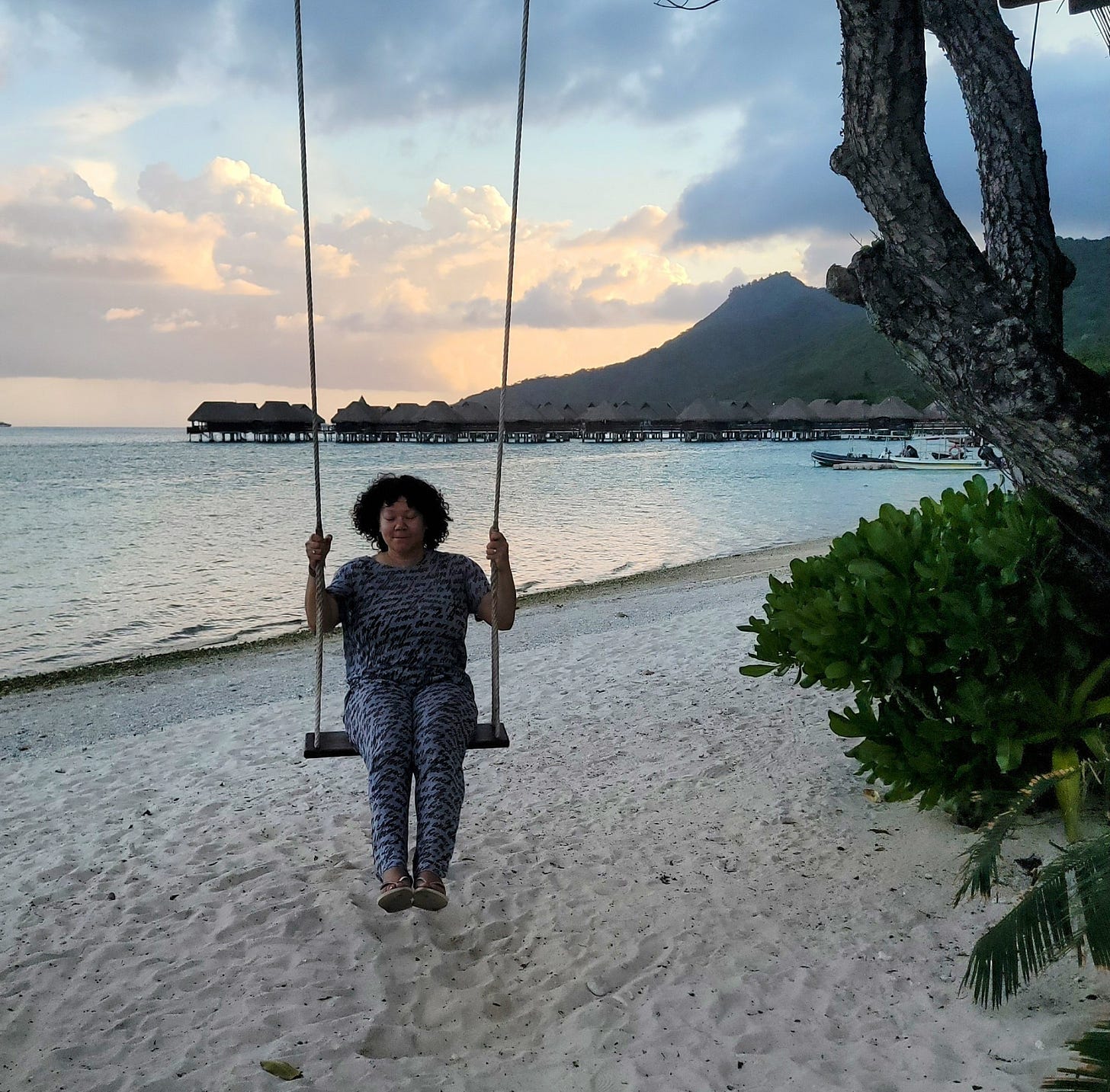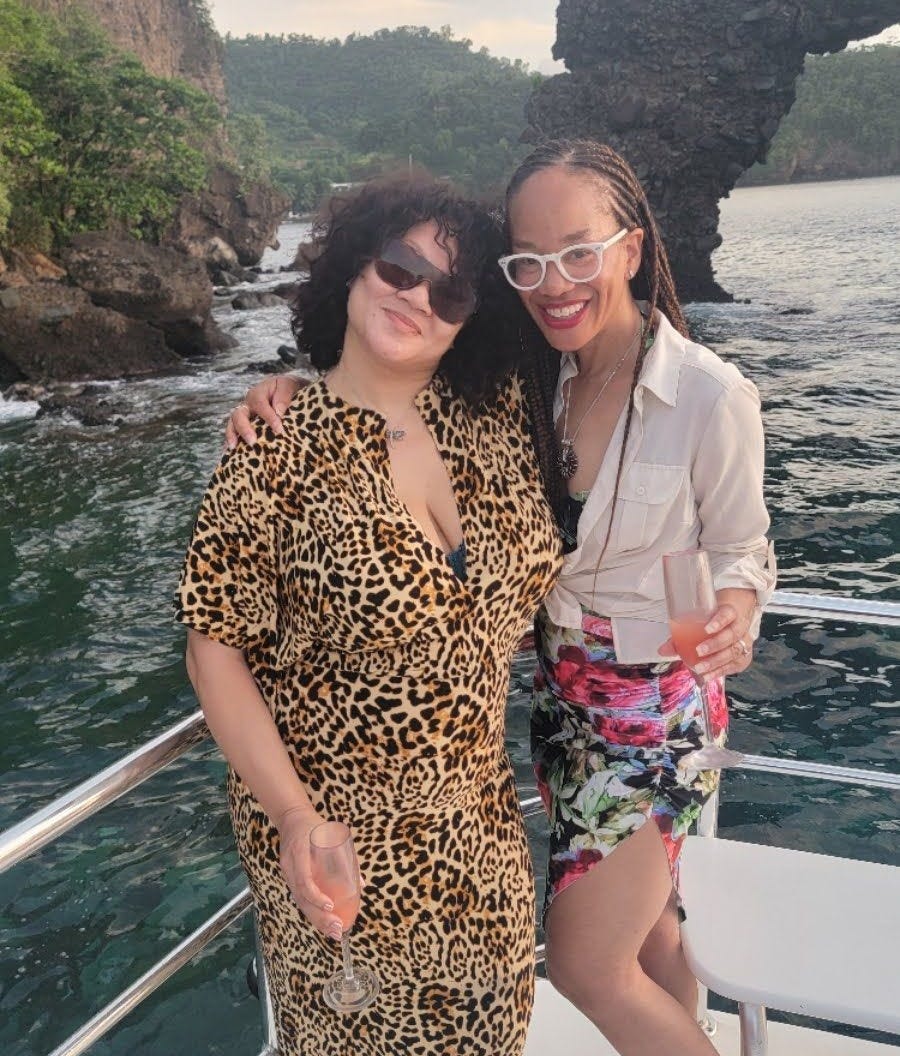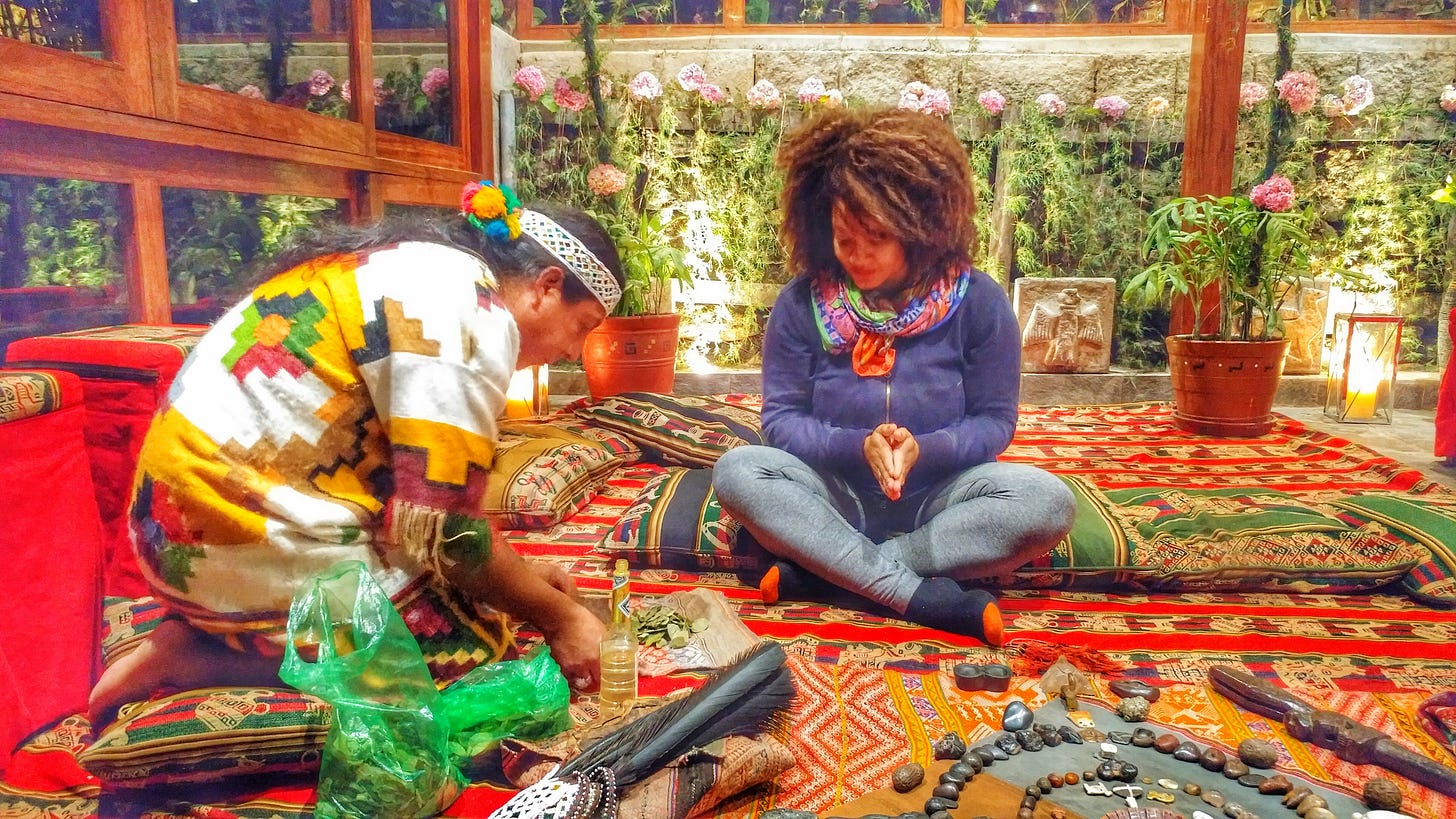More Than a Vacation: The Power & Legacy of Black Family Travel
For Black Americans travel remains a way of reclaiming once abandoned spaces and rewriting our own narratives.

Black travelers spend $145 Billion on domestic travel, according to a new MMGY Global Study examining Black travelers in the US. For Black families, travel hasn’t always been just about leisure. Travel has been an act of resistance, empowerment, and a way to legacy building. My grandparents were born in the early 1900s in Paducah, KY and Ripley, TN and they eventually settled their family in a white house on a corner lot, on Main Street. As American as can be, this Main Street, in Jackson, TN, USA is important to my story, but there are Main Streets all over this country where Black families have stories of travel, trials, and triumph.
From the Great Migration to road trips in the era of the Green Book, mobility has long played a crucial role in economic independence and self-determination. Many Southern Black families, much like mine, split and moved for the big factories and opportunities of Chicago, Detroit, Indianapolis, and even West to Los Angeles. Family road trips simply became part of the fabric of our lives. Black families born of the South often drove up to 8 hours to reconnect with each other, travel essentially became part of our DNA.
As early 20th century Americans, my grandparents had to navigate a country where travel could be perilous. My grandfather served as a Pullman Porter, a group of Black men who traveled the railways serving luxury rail riders. Pullman Porters helped develop the Black middle class and laid the groundwork for the Civil Rights Movement through their work on America’s railroads.
Black travelers prior to the Civil Rights Movement were subject to Jim Crow laws that restricted access to hotels, restaurants, and even public restrooms, energizing them to create their own networks of safe travel spaces. The Green Book, first published in 1936, became an essential tool, listing businesses along the roadways that welcomed Black patrons. These trips weren’t just leisurely getaways, they were also acts of defiance. These road trips proved that Black families could and would carve out their own paths despite systemic barriers. And, like many families, mine took advantage of these spaces to carve their own lane in the travel landscape.

Black family travel was always used as a way to instill pride and knowledge in younger generations. My aunt, Margaret, started Margo’s Charter Service as Chicago’s 1st Black, woman-owned charter company in the 1980s. As a Chicago Public School teacher, she used long weekends and summer vacations, to extend the road trips we often took as a family and made it into a successful and fruitful business adventure. Living in Chicago’s Hyde Park, we often took her bus trips with our school mates, which included kids from both public and private schools, various income brackets, and from both two-family and single parent homes. Never for a second did we think how incredible it was that Margo was taking busloads of Black children to visit places like the Wisconsin Dells, to Six Flags Great America in Illinois, to King’s Dominion in Virginia, and even as far South as Disneyland in Orlando. I can still remember the first time I ever heard the word “yonder” was on one of my aunt’s buses. We arrived at Epcot Center and the bus driver opened the doors to ask where he should park the bus. A parking attendant said, “You can park over YONDER!” I whipped around to my aunt and said, “where is YONDER?”, and honestly, I think she said yonder is wherever it wants to be…to this day, I still cannot explain exactly where yonder is:)

While my family also traveled internationally, I still have the postcards from the early 2000s that my uncle Fred sent from places like São Paulo and Barcelona, they heavily encouraged domestic tourism. My uncle Fred before his death was determined to make it to all 50 states (he did!) and in my quest to do the same, I only have 6 more to go. As a kid, I didn’t grasp why my family made domestic travel so important, but as an adult, I get it. Yet, Black domestic journeys help reinforce our cultural identity in this country and connect younger generations to our ancestors’ persistence.

I have previously been part of the hashtag “Get Your Passport!” movement, but I also very much encourage moving into spaces that may hold memories that aren’t our own. The idea that Black Americans feel more comfortable in the Bahamas or London or Paris or Madrid than in places in the US should be addressed, because racism persists in those spaces too…even when seaside and spoken in other languages.
For Black Americans in the present day, both domestic and international travel remains a way of reclaiming space and rewriting our own narratives. Black families continue to explore destinations that once felt inaccessible, and social media has amplified the importance of our representation in travel. Black, woman-owned companies like Curated Lyfe, are filling the gaps where Margo’s Charter Service left off. Traveling as a Black American, whether with family, friends, or exploring the wild, blue, YONDER alone, is about finding belonging, making and reclaiming history, and ensuring future generations know the world is theirs to see and be seen.





As a kid, I remember those road trips to the Wisconsin Dells, seeing family in Michigan and even to the IHSA basketball state finals in Champaign-Urbana at the University of Illinois. Those were fun times. I believe road tripping is so underrated.